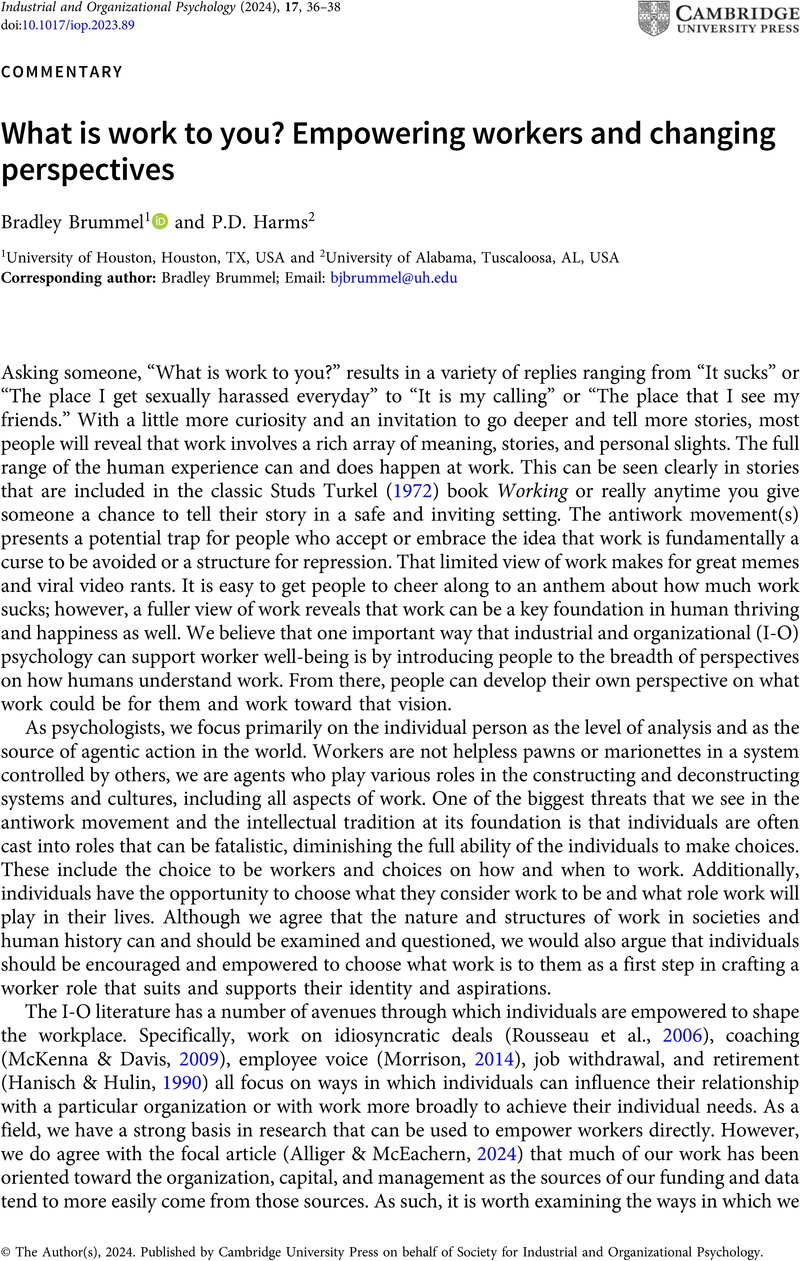No CrossRef data available.
Article contents
What is work to you? Empowering workers and changing perspectives
Published online by Cambridge University Press: 07 March 2024
Abstract
An abstract is not available for this content so a preview has been provided. Please use the Get access link above for information on how to access this content.

- Type
- Commentaries
- Information
- Copyright
- © The Author(s), 2024. Published by Cambridge University Press on behalf of Society for Industrial and Organizational Psychology
References
Alliger, G. M., & McEachern, P. J. (2024). Antiwork offers many opportunities for I-O psychologists. Industrial and Organizational Psychology, 17(1), 1–30.Google Scholar
Hanisch, K. A., & Hulin, C. L. (1990). Job attitudes and organizational withdrawal: An examination of retirement and other voluntary withdrawal behaviors. Journal of Vocational Behavior, 37(1), 60–78.CrossRefGoogle Scholar
McKenna, D. D., & Davis, S. L. (2009). Hidden in plain sight: The active ingredients of executive coaching. Industrial and Organizational Psychology, 2(3), 244–260.Google Scholar
Morrison, E. W. (2014). Employee voice and silence. Annual Review of Organizational Psychology and Organizational Behavior, 1, 173–197.Google Scholar
Rousseau, D. M., Ho, V. T., & Greenberg, J. (2006). I-deals: Idiosyncratic terms in employment relationships. Academy of Management Review, 31, 977–994.Google Scholar
Warr, P., & Clapperton, G. (2010). The joy of work? Jobs, happiness, and you. Routledge.Google Scholar


